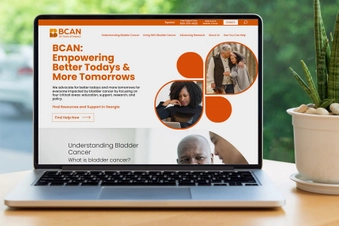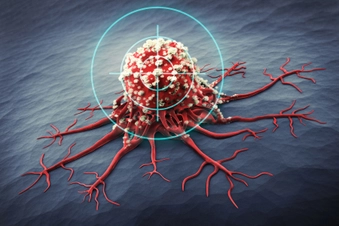Tips for Becoming an Informed Patient With Advanced Bladder Cancer

Why It Matters
Time with your doctor is limited. You'll want to spend it getting answers to important questions, not covering the basics. Do some research to learn about your condition and what you can and can't expect from advanced bladder cancer treatment. It will help you make the most of your office visits and join in making decisions about your care.

Find Reliable Resources
Being an informed patient starts with knowing the right places to get information. Your doctor may have patient education booklets or fact sheets for you, or you can ask them to recommend websites. Good sources include expert health organizations, government agencies, and patient advocacy groups including:

Get Educated
Cancer care involves many terms you may not have heard before. Learning some of them makes it easier to talk to your doctor. For example, they may describe the cancer with terms including urothelial, carcinoma, or muscle-invasive. You may have a test called a cystoscopy. Look up any words you don't understand. Cancer stages and grades can be particularly confusing, so write down the stage you're diagnosed with and learn what it means.

Get to Know Your Care Team
A cancer specialist called an oncologist will be guiding your advanced bladder cancer treatment. But many parts of your care will be handled by a nurse, physician assistant, pharmacist, or other professional. Ask who the best contact is for questions about side effects, medications, or financial issues. Make a list with names and email addresses or phone numbers and keep it handy.

Decide on Your Goals
Advanced bladder cancer – especially metastatic cancer – is difficult if not impossible to cure. Plus, surgery and powerful drug treatments can cause serious side effects. Knowing that, it's important to consider what you hope to get from treatment. Maybe it's living as long as possible, or having the fewest number of symptoms, or something in between. Tell your doctor what you decide, so they can find the best treatment options for you.

Learn About Treatment Options
There's a wide range of options for treating advanced bladder cancer, including surgery, chemotherapy, immunotherapy, and targeted therapy. The treatments you have to choose from depend on many things, including the stage of the cancer and your overall health. Find out when the different types of treatments are used, what they can do for you, and what side effects they may cause.

Stick to Your Schedule
Once you and your doctor have chosen a treatment plan, be sure you understand how it will work.
- When will treatment start?
- How often will you have treatments?
- When will you have imaging and lab tests?
- How often will you go back for follow-up appointments?
Sticking to your treatment and follow-up schedule gives you the best chance for success and makes it more likely that if the cancer comes back, you'll catch it early.

Watch for Side Effects
All treatments can cause side effects. Many are normal and get better with time or can be managed. Others are a sign that something is wrong. Know what symptoms to expect and when you should call the doctor's office or get to an emergency room.

Write Things Down
Make a list of things you want to talk to your doctor about in the order of how important they are. That will help keep your appointments on track. See whether the office will take your questions ahead of time by email so your doctor can be prepared. During your appointment, make notes of what your doctor tells you, then go over them later to make sure you understand everything. If not, follow up with a member of their team.

Find a Partner
It's helpful to have someone who can be a sounding board and a second set of eyes and ears as you go through treatment. This could be your spouse or partner, a family member, or a close friend. As you're doing research, talk it through with that person. That can help reinforce what you've learned and bring up questions you might not have thought about. It may also help to have your partner join you at your appointments.

Connect With Other Patients
People in the same situation as you are can be a great source of support, but also information. They may know about new treatments or places to get a second opinion. They may also have practical tips on managing symptoms and advocating for yourself. Ask your doctor's office if there's a support group in your area. You can also look online at places including the Bladder Cancer Advocacy Network and American Cancer Society.

Look Into Financial Resources
Cancer treatment can be very expensive, and insurance coverage can vary. Check with your provider to see exactly what's covered and what your copays are. And if you need assistance, check into some resources that can help, including:

Stay Informed
Getting treated for advanced bladder cancer isn't the end of the story. Many people need more than one type of treatment. And even if your treatment is successful, it's common for the cancer to come back. Find out what symptoms to watch for and what other options you have. Doctors are learning more about cancer treatment all the time, so stay up to date on the latest in research and clinical trials.
Show Sources
IMAGES PROVIDED BY:
- Westend61/Getty Images
- iStock/Getty Images
- E+/Getty Images
- DigitalVision/Getty Images
- E+/Getty Images
- iStock/Getty Images
- iStock/Getty Images
- E+/Getty Images
- E+/Getty Images
- E+/Getty Images
- E+/Getty Images
- E+/Getty Images
- E+/Getty Images
SOURCES:
National Cancer Institute: "Taking Time: Support for People With Cancer," "How to Find Cancer Resources You Can Trust," "Bladder Cancer Stages."
National Comprehensive Cancer Network: "NCCN Guidelines for Patients: Bladder Cancer 2025."
National Institute on Aging: "How to Prepare for a Doctor's Appointment."
American Cancer Society: "Understanding Your Options and Making Treatment Decisions," "The Doctor-Patient Relationship," "Health Professionals Who Are Part of a Cancer Care Team," "What Is Bladder Cancer?" "Treatment of Bladder Cancer, Based on the Stage and Other Factors," "Questions to Ask About Bladder Cancer," "Living as a Bladder Cancer Survivor."
Bladder Cancer Advocacy Network: "What Is Bladder Cancer?" "Find Support."
Cancer Support Community: "Determine the Treatment That's Right for You."